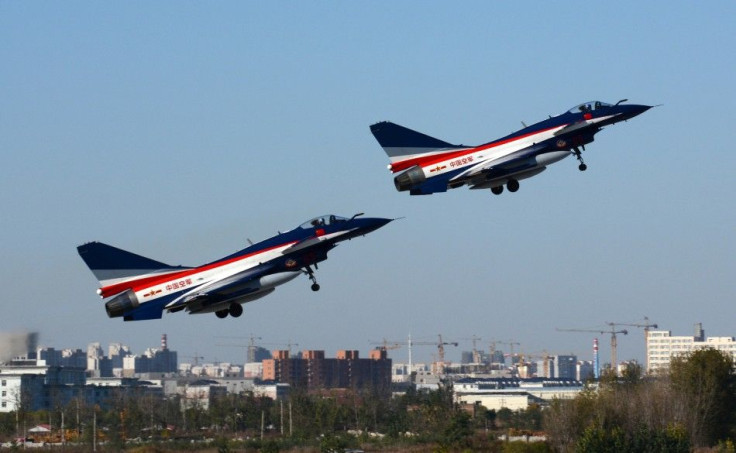Chinese Engineer Facing Charges Of Stealing US Fighter F 35 Design Data

The new designs of U.S advanced fighter jet F-35 would have been in Chinese hands but for the timely arrest of a Chinese national who tried to ship out the new designs having sensitive cost saving technology details of the advanced fighter jet. The documents were recovered from the luggage of a Chinese national who was flying from New York to China, during his arrest in early November.
Yu Long, an engineer aged 36, was charged in a Bridgeport, Connecticut court on Dec. 9 for lifting the documents from an unnamed defence contractor in Connecticut where he has been working, reported Want China Times. The Chinese national faces charges of "transporting, transmitting, and transferring in interstate or foreign commerce goods obtained by theft, conversion, or fraud." The charges can attract 10 years in prison and $250,000 in fine. The investigation was led by the FBI in New Haven in conjunction with Homeland Security Investigations in Newark.
Sensitive Documents
Yu was arrested on Nov 6, with a bevy of sensitive documents containing "detailed equations and test results in the development of technologically advanced titanium for U.S. military aircraft," according to a press release from the U.S. Attorney's Office.
It said the designs for the "advanced titanium" were being developed in cooperation with major defense contractors including the firm where Yu worked under a request from the U.S. Air Force to "see whether they could collectively lower the costs of certain metals used."
The research is of high value from a cost point of view. The F-35 fighter jet is estimated to cost $337 million for each piece and has been controversial, reported Alabama News. The report said that China may have high interest in Yu's files for many reasons. One reason is that the Chinese regime benefited earlier from espionage. China gained access to stolen U.S. designs of the F-35 in 2007, and used that sensitive technology in its various versions of the J-20 fighter jets.
It has also been confirmed that before Yu was arrested, he undertook several trips to China. In one of his trips on Aug. 19, Yu returned with $10,000 in undeclared cash along with some registration documents for a new company in China. The press release said it was "a largely completed application for work with a state-controlled aviation and aerospace research center in China." It is apprehended that Yu might have been bargaining for deals with the Chinese regime for aerospace development, by registering his own business in China.
Engine Technology
Yu had worked on the F119 engine used in the U.S. F-22 fighter jet, and the F135 engine of. F-35 fighter jet. The jets are the most expensive and most advanced weapons in the world. China, faced with a lack of domestic expertise with regard to developing new generation jet engines, had been importing the engines from Russia.






